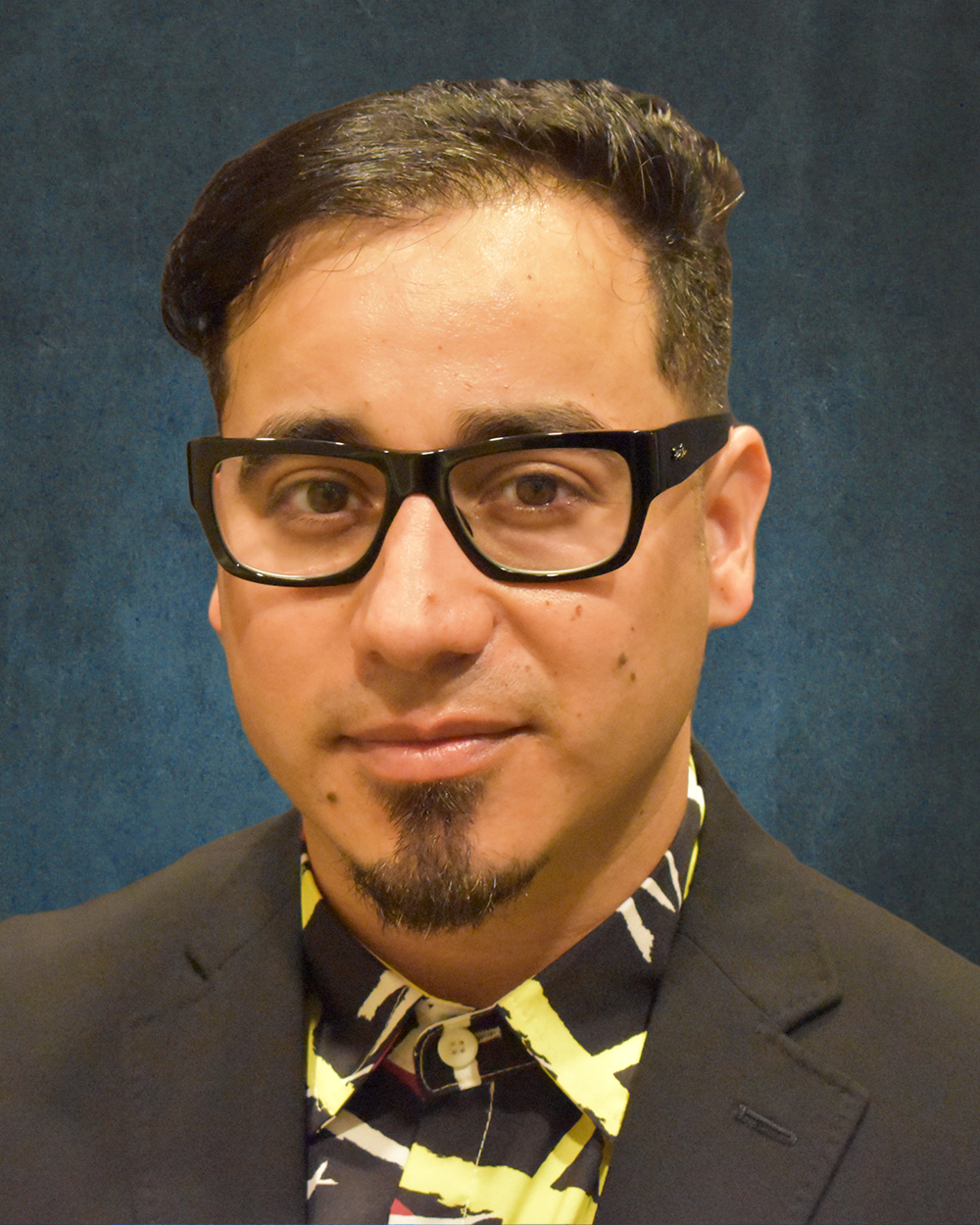
Dasaeb Lopez is an addictions counseling master’s fellow in the 2022-2023 class of the Minority Fellowship Program (MFP) with the National Board for Certified Counselors (NBCC), and the Association for Addiction Professionals (NAADAC). He received his B.S. in psychology from the Universidad Autonoma de Tamaulipas in Tamaulipas, Mexico. He is currently pursuing a master’s in clinical mental health counseling from St. Edward’s University in Austin, Texas. Dasaeb is a mental health case manager in Austin, Texas, servicing individuals who have co-occurring psychiatric and substance use disorders and assists in their recovery management. During his wellness time, Dasaeb enjoys playing drums in Austin, appreciating the local art, attending live music events, exercising, hiking, cooking, and spending time with his family, husband, and three dogs.
Dasaeb was initially drawn to the MFP because he felt his interests in working with and advocating for non-represented and under-represented minority groups and individuals with chronic discrimination-related stress and multigenerational trauma would be fostered through the program. He shared, “I had such an interest in working with LGBTQI+ transgender individuals in the area of vocational rehabilitation to help them achieve competitive employment as well as helping clients living with chronic physical-neuropathic pain by treating behavioral addiction and substance misuse to improve their quality of life.”
When reflecting on how the MFP has enriched his academic career and built his professional network, Dasaeb shared that it has allowed him to improve his professional skills and develop a collaborative professional network with other fellows. He stated, “I have been able to improve skills that will enable me to develop future competitive assessments, evaluations, and treatments for better outcomes among clients. The MFP has also given me the opportunity to build positive connections and relationships with peers who have similar interests and goals of helping others and making a difference in our communities. Because I am committed to helping my Hispanic community, being a part of the MFP reiterates my personal ethics and values, which will help to improve the quality of service we provide.” He plans to apply the knowledge and skills acquired from the MFP to his work as a clinician, researcher, and advocate. He states, “In my future clinical practice, I plan to work in the field of pain management, LGBTQI+, counseling research, and bilingual counseling.
Dasaeb is currently working to establish a non-profit organization that provides psychoeducation awareness, support groups and reduced cost counseling services for individuals suffering from discrimination in the workplace or school and in other society settings. He states, “I plan to promote advocacy for social justice and inclusiveness among clients from non-dominant minority groups that are dealing with multigenerational trauma and racism-related stress.” Post-MFP, he intends to continue his support of social justice, and inclusion, and advocate for anti-discrimination racism against Latinx, people of color, individuals living with disabilities, and the LGTBQI+ communities. He also has plans to provide quality care and utilize a clinical evidence-based and person-centered wellness model to reduce health disparities among ethnic and racial minorities who have co-occurring mental, substance misuse, and addiction disorders. Dasaeb shared, “I also plan to create support groups and network counseling for LGBTQI+ individuals dealing with chronic pain. that are experiencing a lack of employment opportunities, due to discrimination.”
When asked what advice he had for anyone thinking about applying to the MFP, Dasaeb said, “Applying for the MFP was the brightest decision ever! The MFP allows students to integrate their future goals into the program to nurture their specific needs! The program is helping individuals build their skills, access resources, and receive mentorship to make a difference within their community.”
He went on to share about his experiences through the NBCC program stating, “I am incredibly grateful for the training, mentorship, and support provided by the NAADAC/NBCC staff and program. It is a life-changing experience for students that are selected for the program, which enables fellows to find the resources needed to help minority communities. The clients are best served when clinicians provide appropriate relational and culturally competent care. For that reason, the MFP fills a crucial need by preparing the behavioral health services workforce to reduce health disparities among racial/ethnic persons of color in the U.S.”